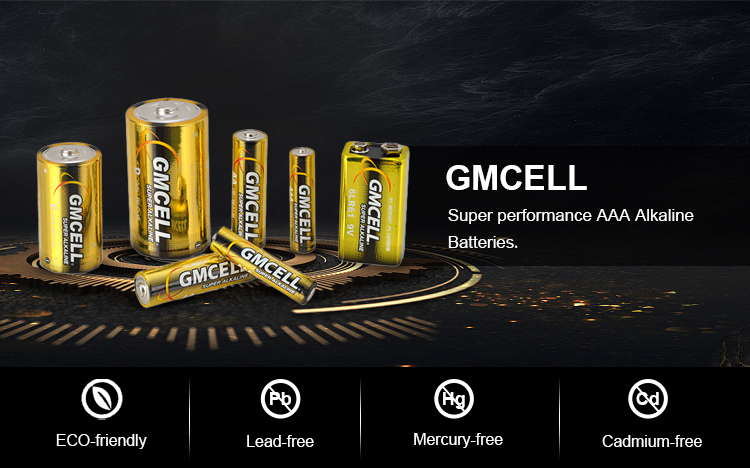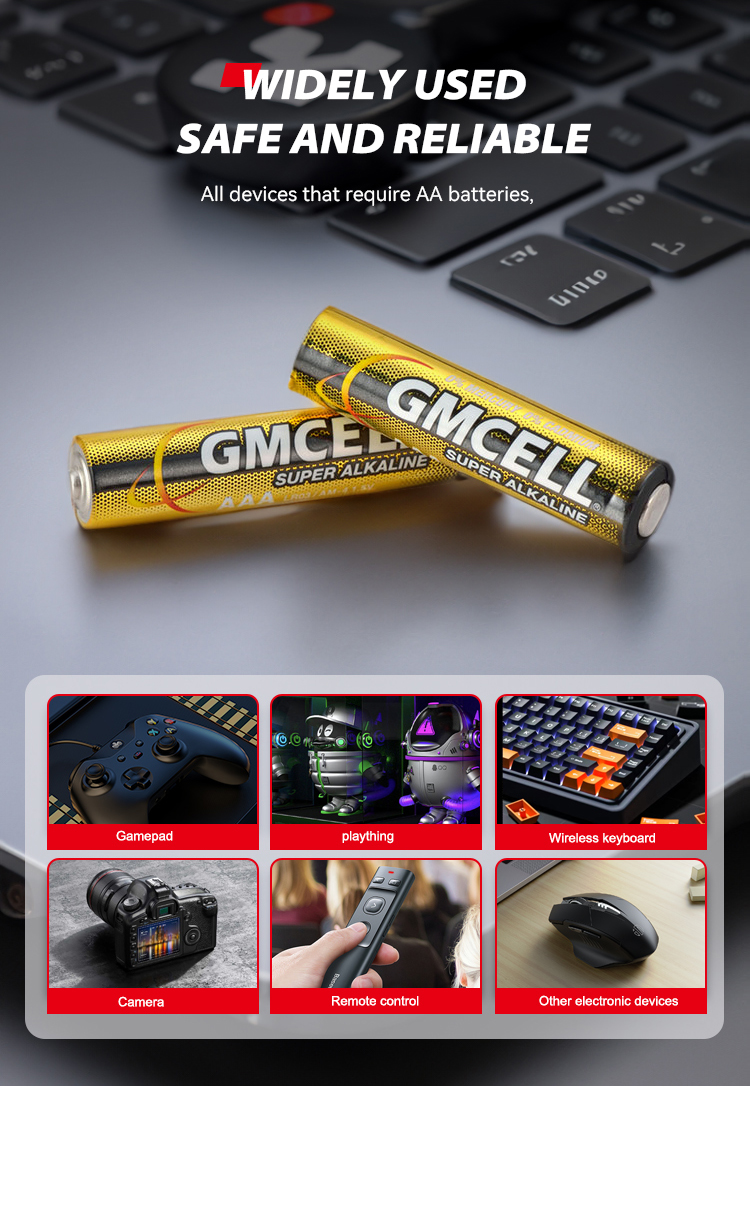
Alkaline batteries and carbon-zinc batteries are two common types of dry cell batteries, with significant differences in performance, usage scenarios, and environmental characteristics. Here are the main comparisons between them:
1. Electrolyte:
- Carbon-zinc battery: Uses acidic ammonium chloride as the electrolyte.
- Alkaline battery: Uses alkaline potassium hydroxide as the electrolyte.
2. Energy density & capacity:
- Carbon-zinc battery: Lower capacity and energy density.
- Alkaline battery: Higher capacity and energy density, typically 4-5 times that of carbon-zinc batteries.
3. Discharge characteristics:
- Carbon-zinc battery: Unsuitable for high-rate discharge applications.
- Alkaline battery: Suitable for high-rate discharge applications, such as electronic dictionaries and CD players.
4. Shelf life & storage:
- Carbon-zinc battery: Shorter shelf life (1-2 years), prone to rotting, liquid leakage, corrosive, and power loss of about 15% per year.
- Alkaline battery: Longer shelf life (up to 8 years), steel tube casing, no chemical reactions causing leakage.
5. Application areas:
- Carbon-zinc battery: Primarily used for low-power devices, such as quartz clocks and wireless mice.
- Alkaline battery: Suitable for high-current appliances, including pagers and PDAs.
6. Environmental factors:
- Carbon-zinc battery: Contains heavy metals such as mercury, cadmium, and lead, posing a greater risk to the environment.
- Alkaline battery: Utilizes different electrolytic materials and internal structures, free of harmful heavy metals like mercury, cadmium, and lead, making it more environmentally friendly.
7. Temperature resistance:
- Carbon-zinc battery: Poor temperature resistance, with rapid power loss below 0 degrees Celsius.
- Alkaline battery: Better temperature resistance, functioning normally within a range of -20 to 50 degrees Celsius.

In summary, alkaline batteries outperform carbon-zinc batteries in many aspects, particularly in energy density, lifespan, applicability, and environmental friendliness. However, due to their lower cost, carbon-zinc batteries still have a market for some low-power small devices. With technological advancements and increased environmental awareness, an increasing number of consumers prefer alkaline batteries or advanced rechargeable batteries.
 AAA Batteries
AAA Batteries AAA 600mAh
AAA 600mAh USB Rechargeable Batteries
USB Rechargeable Batteries
 USB Battery
USB Battery AAA Batteries
AAA Batteries AAA R03 Batteries
AAA R03 Batteries CR2032
CR2032 AAA 600mAh
AAA 600mAh USB Rechargeable Batteries
USB Rechargeable Batteries
